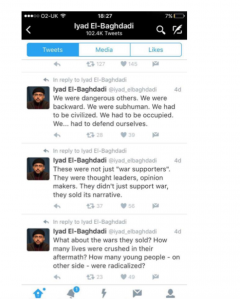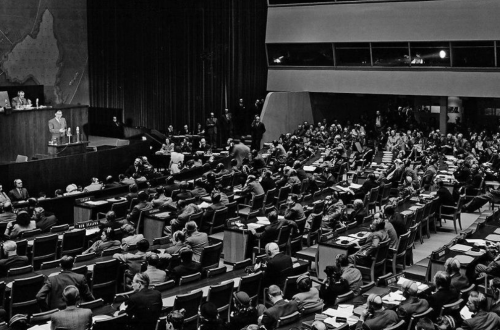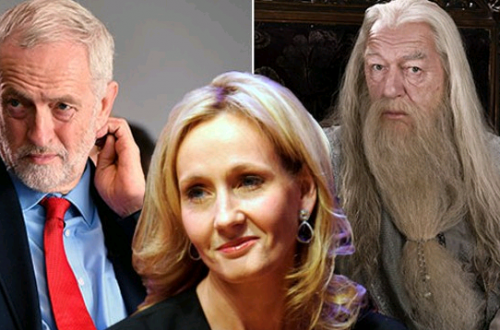This is a guest post by Amjad Khan
Western atheists have been criticising and ridiculing Christianity for years and much of this critique went largely unnoticed as far as political commentators were concerned. In fact, western leftist commentators were largely supportive of their efforts. However, this all began to change when the same atheists turned their ire to another religion, namely Islam. All of a sudden their efforts were deemed bigoted and they became a target for the regressive left that views Islamist agitation as an opportunity to be exploited. The likes of Glenn Greenwald and CJ Werleman (a sort of wannabe Greenwald who would be a nobody without his twitter account) suddenly began attacking the likes of Richard Dawkins as though he was Hitler. This, in turn, seems to have inspired another aspiring twitter commentator.
Iyad Al-Baghdadi is a minor twitter sensation who seems to do nothing but tweet all day about issues related to the Middle East and Islamism. He admits to being a former extremist who was kicked out of the UAE, but very little else is known about his background and expertise, or lack thereof. In a recent set of tweets, he has accused Sam Harris, Ayaan Hirsi Ali and Christopher Hitchens of having sold the wars of the West, through a mixture of dehumanisation of Muslims, and scaremongering of Islam.
Let’s assess the accuracy of these claims.
Contrary to Bagdadi’s wild claims, Sam Harris was largely neutral on the question of the Iraq War; in fact he was pretty much an unknown in the build up to the war in 2002-2003. In retrospect he wrote ‘The truth is, I have never known what to think about this war, apart from the obvious: 1) prospectively, it seemed like a very dangerous distraction from the ongoing war in Afghanistan; 2) retrospectively, it was a disaster. Much of the responsibility for this disaster falls on the Bush administration, and one of the administration’s great failings was to underestimate the religious sectarianism of the Iraqi people.’
This can hardly be construed as a demonization of Muslims or selling the Iraq war.
Similarly, Ayaan Hirsi Ali only came to prominence in 2004 when her colleague Theo Van Gogh was killed in a jihadist attack. Like Sam Harris, Ayaan has said very little about the Iraq war, before and after the 2003 invasion, and the few times she has been asked have produced ambiguous and tepid responses. In one interview she said ‘the assumption that the administration made was that they thought that you could go in there for a short while and show the people, “See, we are your friends,” and that everyone in Iraq would embrace democracy—from tribalism to democracy; from dictatorship to democracy—that is the mistake that was made. There was no commitment to stay for at least fifty years or a hundred years’ and ‘it is not clear to me why it is that the United States went to Iraq.’
Again whether you agree with her stance or not she was hardly selling the war.
The most glaringly untrue and simplistic part of Baghdadi’s string of tweets is Hitchens’ stance on the Iraq War. Baghdadi seems convinced that the likes of Hitchens were motivated by a need to “civilize” the uncivilized. That their support and advocacy for the Iraq war was an imperialist one. This is flat out wrong. Hitchens was in fact a long time trotskyist, anti-war campaigner and far-leftist by his own admission. This might have become less the case leading up to 2003, but it was indeed the case in the late 1980s and early 1990s.
Hitchens actually opposed the allied intervention during the first Gulf War. It was only after the implementation of no-fly zones in Iraq that Hitchens began to change his view. He visited the Kurdistan region, and saw the lives that were saved as a result of that intervention and perhaps more importantly, the lives lost a few years early, during the al-Anfal campaign and as a result of non-interventionism. In his famous debate with George Galloway he said “…I didn’t have a clever anti-war argument for that…”
To say Hitchens dehumanised Muslims as a tool to promote war is the exact opposite to what really took place. His reasons for supporting the war, and the total reversal of his earlier views on interventionism, were almost entirely inspired for his empathy toward the struggle of the Kurds. However misplaced or misguided you believe his views to have been, whatever your reservations for Kurdish Nationalism may be, and however idealistic Hitchens might have been, his support for the Iraq War was in no way based on the dehumanisation of Iraqis. In fact, almost entirely to the contrary. It could almost be said that he suffered from overly idealistic empathy.
As demonstrated, the evidence for Harris and Hirsi-Ali supporting the Iraq-war is extremely thin and the motivations he has attributed to are Hitchens are also demonstrably false. There is a clear distinction between supporting war in Muslim majority countries, and criticising Islam and/or Islamism, and this is the line that’s been blurred whether intentionally or not. Bagdadi, and those who think as he does, seem to project their own mental caricatures onto critics of Islam in order to tackle something they are familiar with. It is intellectually lazy and deeply disingenuous.
I do sympathise with Baghadadi on some level, it must be frustrating to see fellow Arab and Muslim countries plunged into war almost whimsically, to see a gigantic loss of life in these countries, and to realise how cheap Arab and Muslim blood is. But how did this cheapening happen? You’ll find the answer somewhere quite obvious as well as somewhere quite surprising.
The obvious places are the Muslim and Arab countries themselves. The decades of genocide, aggression against neighbouring Arab and Muslim countries, sectarian policies, totalitarian police state etc. are what made Iraq the crumbling abyss it already was, before the Americans arrived. It’s that cheapening of life, and continued will to do so by Saddam, that made an occupation seem almost whimsical in comparison. Casual genocide and mass murder, unsurprisingly, make loss of life unremarkable.
The second and more surprising place, is the anti-war movement itself. If you want to see an example of the imperialist thinking that Baghdadi complains about, where the uncivilized need to be civilized, think about the following fairly common opinions; “Saddam may have been a bad guy, but he did a lot for his country and he offered stability”. This was indeed the opinion of Hitchens himself during his anti-war days when he said Saddam was “perhaps the first visionary Arab statesman since Nasser”. This is to say that Iraqis, small and insignificant people they are, don’t deserve any better than tyranny. Sure, he’s brutal and maybe a little unorthodox, in fact we’d never tolerate him to lead any western country but why do Iraqis deserve any better?
If you’re going to oppose the Iraq-war in favour of stability, in spite of the mass murdering Saddam regime, you can hardly do so on the basis of valuing Iraqi lives. In fact, this, if anything, holds no value for Arab and Muslim life whatsoever. It is to favour the tyrant that I know, over the foreigner I don’t. I’m not saying these are the ideas of Baghdadi, but if he wishes to understand where this “existential threat” that he talks about comes from, it lies in a sinister suggestion in one of his tweets. “…We had to be occupied…We…had to defend ourselves”
In spite of his surname, Bagdadi is not an Iraqi. His country was never occupied by the US. The Iraqi insurgency was made up of either Baath Party funded foreign al-Qaeda operatives, or Iran funded Shia Islamist groups. It is these two factions that did the vast majority of the killing and incitement to violence and not atheists in the west such as Sam Harris. If the likes of Bagdadi want Arab and Muslim lives valued, it’s their responsibility to align themselves with those who actually value their lives and to stop erecting straw men that allow them to earn a few brownie points on Twitter.




